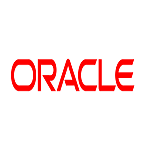
DevOps Certification Training Course
Have Queries? Call Us
+91 73960 33555
400+
Students Trained
5 ***** (290)
Ratings
45 Days
Duration
Course Demo Video

DevOps Training Course Details
Introduction To DevOps Training
What you’ll learn
- Learn DevOps Skills from an Industry Expert
- Version Control, Linux, Containerization & Orchestration
- GIT, GITHUB, Azure Repo, Docker, Kubernetes, AKS, EKS
- Azure DevOps & CI/CD with AWS DevOps
- CI/CD With Jenkins, CM with Ansible and Terraform
- AWS & Azure Cloud Core Skills
- Communication, Collaboration & Monitoring
- Prepare for DevOps certification exams and get Job Ready
- Resume & Interview preparation and Job Assistance
Who this course is for:
- Any IT experienced Professional who want to build career in DevOps
- Graduates or post graduates who want to Jump Start their career with DevOps
- Freshers who want to get an IT job with great pay
Prerequisites for DevOps Training:
We will cover these topics as part of DevOps training course.
- Basics of DevOps
Why Enrol in DevOps?
DevOps is one of the hottest career paths today. DevOps specialists who are experts in automation are in huge demand.
Many top firms use DevOps to reduce deployment time & infrastructure costs. It also boosts recovery time, employee involvement, and success rate.
The average devops engineer salary in the USA is $130,000 per year or $62.50 per hour - Ziprecruiter.com
Why Choose Us

Learn from the Best
We have got the certified training experts with domain expertise to train you

Real Time Implementation Projects
We will use real time implementation scenarios to explain the course content

Interactive Online Training Sessions
Expert trainers take highly interactive live training sessions and we do share the training videos

Resume, Interview & Job Assistance
We will help you with resume preparation, train you for the interviews, and provide job assistance

Live Demos
You can attend up to 3 live demo classes before you join the course

24*7 Support
We work round the clock and respond to your queries promptly
2000+
Batches Completed
20000+
Happy Students
5 *****
Star Ratings
50+
Expert Trainers
DevOps Training Course Curriculum
- Introduction to DevOps
- Benefits of working in a DevOps environment
- DevOps Lifecycle
- DevOps Stages
- DevOps Delivery Pipeline
- Web Application Architecture
- Web Technologies
- Web Technologies used in Projects
- SDLC Methodologies
- Waterfall Methodology
- Agile Methodology
- Scrum Framework
- What is DevOps?
- What is Cloud, SAAS, IAAS, PAAS?
- What is Testing?
- The Manifesto for Agile Software Development
- The Principles behind the Agile Manifesto
- Agile Approaches
- Agile Frameworks
- Introduction to Cloud Computing
- Benefits of Cloud Computing
- Leading Cloud Computing Providers
- Cloud Offerings - Public vs Private vs Hybrid
- Infrastructure As A Service - IAAS
- Platform As A Service - PAAS
- Software As A Service – SAAS
- Creating a Free Tier Account With AWS.
- AWS Management Console.
- Creating your first Virtual Machine in Cloud.
- Introduction to Operating Systems Introduction to Linux OS
- Linux Distributions
- Linux Architecture
- Understanding Command Line Interface - CLI
- Understanding Linux File System
- Using Text Editor (vi)
- File & Directory Management
- Archive Files Using tar and zip utilities
- Package Management
- User Management
- File Permissions
- Service Management
- Understand how IP addresses, ports, and DNS works
- Load Balancers
- HTTP/HTTPS
- Centralized Version Control System
- Distributed Version Control System
- Git Introduction
- Git Architecture
- Git Workflow
- Git Branching Model
- Git Merging Branches
- Detached Head for Retro scoping
- Undoing Changes
- Git Ignore
- GitHub For Remote Repositories
- Using existing GIT Repositories with Clone
- Pull Requests
- Tagging
- Understanding Code Build Process
- Introduction to Maven
- Building a Java Based Web Project using Maven
- Overview and Flow of Continuous Integration
- Benefits of Continuous Integration
- Requirements of Continuous Integration
- Build tools and Repository Manager for Continuous Integration
- Overview of Continuous Deployment
- Benefits of Continuous Deployment
- Tools for Continuous Deployment
- Agile Mentality of Continuous Deployment
- Overview of Jenkins
- Setting Up Jenkins
- Setting Up Build Jobs
- Build Parameters & Triggers
- Jenkins Job DSL & Plugins
- Introduction to Code Analysis
- Code analysis using and SonarQube.
- Setting Quality Gates in SonarQube.
- Introduction to Software Repositories
- Storing artifacts in Nexus.
- Integrating Slack with Jenkins pipeline.
- Deploying to web app to Web Container using Jenkins.
- High Availability Jenkins Architecture.
- AWS Regions
- AWS Availability Zones
- VPC Components
- Internet Gateway
- Subnets
- Route Tables
- Network Access Control List - NACL
- Security Group
- VPC Requirement
- VPC Subnetting
- VPC Requirement
- Build Custom VPC
- Introduction To EC2
- EC2 Components
- EC2 Instance Setup
- SSH Clients
- GitBash - Putty - Terminal
- AWS Key Pairs
- Apache Web Server Setup
- Hosting Web Application
- Public IP
- Private IP
- Elastic IP
- Godaddy - DNS Setup
- Configuring DNS for Website Mapping
- Public Subnets
- Private Subnets
- Public Subnets vs Private Subnets
- Bastion / Jump Server
- NAT Gateway Intro
- Setup NAT Gateway with Private Subnets
- Install Application using NAT Gateway
- Update Application Patches using NAT Gateway
- Intro To Databases
- IAAS Databases vs PAAS Database
- Host IAAS Databases
- Host PAAS Database
- Setup Web Application For IAAS DB
- Setup Web Application For PAAS RDS
- Walk through Azure Free Tier Account
- Overview of Azure Resource Manage
- Azure Regions
- Azure Availability Zones
- Azure VNET Components
- Creating a Virtual Network
- Virtual Network Peering
- Azure Bastion
- Azure Load Balancer
- Introduction To VM’s
- Azure VM Components
- Azure VM Setup
- SSH Clients
- GitBash - Putty - Terminal
- Azure Key Pairs
- Apache Web Server Setup
- Hosting Web Application
- Private & Static IP
- Godaddy - DNS Setup
- Configuring DNS for Website Mapping
- Intro To Databases
- Setup Database Instance
- Setup Web Application For DB
- Setup SQL Instance
- Setup Web Application For SQL
- Virtualization using Virtual Machines
- Introduction to Containerization
- Virtual Machines vs Docker
- Docker Architecture
- Components of Docker
- Setting up Docker
- Docker Registry
- Docker Images Vs Docker Containers
- Running Docker Containers
- Docker Volumes
- Containerize Applications
- Creating Docker Container from Docker Image
- Sharing images using Docker Hub
- Deploying Docker applications using multiple containers
- Running applications using Docker Compose
- Docker Networks
- Introduction to Container Orchestration
- Container Orchestration Tools
- Overview of Kubernetes
- Kubernetes Architecture
- Components of Kubernetes
- Understanding Containers
- Running Containers
- Sustaining Containers
- Running Pods of Containers
- Clustering of Pods
- Clustering of Containers
- Replica Sets
- Deployments and Services
- Attaching Docker and Kubernetes
- K8s Release Notes
- Linking Kubernetes and Cloud Native
- Benefits of using managed Kubernetes services.
- Understanding EKS by AWS
- Creating EKS Cluster.
- Understanding AKS by Azure
- Creating AKS Cluster.
- What is Azure DevOps?
- Azure Boards
- Azure Repos
- Azure Pipelines
- Azure Test Plans
- Azure Artifacts
- Creating Pipelines in Azure DevOps
- Connecting project in Azure DevOps
- What are Azure Boards?
- Why use Azure Boards?
- Agile Project Management Best practices
- Basic concepts of Azure Boards
- Connecting Boards to GitHub
- Work item
- Kanban Board
- Sprint
- Scrum and Plans
- Azure Boards Integrations
- Introduction to Azure Repos
- Compare TFVC and Git
- Key Concepts in Azure Repos
- Search your code in Repos
- What is TFVC?
- Azure Repos Integrations
- What are Azure Pipelines?
- Why use Azure Pipelines
- Deploying to Azure
- Key concepts in Pipelines
- CI Triggers in pipelines
- YAML Basics
- Ecosystems and Integration
- Setting up CI build
- Adding Tests to the Pipeline
- Agents and Tasks
- What are Azure Artifacts?
- Key concepts in Artifact
- Working with packages
- Feeds
- Views and upstream sources
- Connecting to Azure Pipelines
- What are Azure test plans?
- Exploratory and Manual testing
- Test from Kanban board
- Creating Test Plans
- Testing Web Apps
- Complexity in Infrastructure Management
- Introduction to Configuration Management Tools
- PULL vs PUSH Based Configuration Management
- Introduction To Ansible
- Ansible Setup
- Ansible Inventory
- Ansible Modules
- Ansible Ad-Hoc Commands
- Introduction To YAML
- Ansible Playbooks
- Ansible Handlers
- Ansible Facts & Variables
- Ansible Templates
- Ansible Roles
- Introduction to Monitoring
- Introduction to Observability
- Introduction to Prometheus
- Working with Prometheus
- Monitoring and Alerting
- Internals – Storage and Security
- Grafana Overview and Overall Architecture
- Installing Grafana on a Linux Server and Windows
- Starting, Stopping Grafana Services on Windows
- Installing Grafana on Docker
- Creating Grafana Dashboards
- Grafana User Interface Overview
- Implementing Monitoring and Observability with Grafana
- Explain various DevOps Certification Options
- Discuss 50+ Important DevOps questions
- Practice DevOps Certification questions
- Prepare Crisp Resume as Salesforce Admin & Developer
- Discuss common interview questions in Salesforce
- Explain students what jobs they should target and how
Top Course Categories
ABOUT UNOGEEKS
Who We Are
Unogeeks is the Top Software Training Institute which delivers Best In Class training in Trending IT Courses. We help you
1) Master IT Skills Hands On from Industry Experts
2) Complete Real World Implementation Projects
3) Clear Official Certification Exams
4) Build Resume and Attend Mock Interviews
5) Build Confidence and Get Job Ready

DevOps Training FAQs
There are several reasons why you might consider DevOps training:
- Collaboration and Efficiency: DevOps training equips you with the knowledge and skills to foster collaboration between development and operations teams. By implementing DevOps practices, organizations can achieve faster and more efficient software development cycles, leading to improved productivity and time-to-market.
- Automation and Continuous Delivery: DevOps emphasizes automation of software development, testing, and deployment processes. With DevOps training, you can learn how to utilize tools and technologies to automate tasks, implement continuous integration and delivery pipelines, and improve overall software quality and reliability.
- Cultural Transformation: DevOps is not just about tools and processes; it also involves a cultural shift in organizations. DevOps training helps you understand the principles and mindset behind DevOps, fostering a culture of collaboration, transparency, and continuous improvement.
- Scalability and Flexibility: DevOps practices enable organizations to scale their infrastructure and applications seamlessly. With DevOps training, you can learn how to leverage cloud computing, containerization, and infrastructure-as-code to achieve scalability and flexibility in deploying and managing applications.
- Career Growth: DevOps skills are in high demand in the industry. By acquiring DevOps expertise, you enhance your career prospects and open up opportunities in roles such as DevOps engineer, site reliability engineer, automation architect, and more.
- Improved Software Quality and Reliability: DevOps focuses on enhancing software quality, stability, and reliability through practices like automated testing, continuous monitoring, and proactive incident response. DevOps training equips you with the knowledge to implement these practices, resulting in better software outcomes and customer satisfaction.
- Alignment with Industry Trends: DevOps has become a mainstream approach to software development and operations. By investing in DevOps training, you align yourself with current industry trends and best practices, ensuring that you stay relevant and competitive in the fast-paced technology landscape.
DevOps courses are available for individuals with different levels of experience, including beginners. Many DevOps courses are designed to accommodate learners with limited or no prior knowledge of DevOps practices and tools. These beginner-level courses typically cover fundamental concepts, methodologies, and tools used in DevOps, introducing learners to the principles of collaboration, automation, and continuous delivery. They provide a solid foundation for understanding DevOps practices and their benefits. As learners progress, they can explore more advanced topics and gain hands-on experience with DevOps tools and technologies. DevOps courses for beginners are a great starting point for individuals looking to enter the field of DevOps and build a strong skill set.
DevOps certification courses are designed to validate individuals' knowledge and skills in DevOps practices, tools, and methodologies. These courses offer a structured learning path and often follow specific certification programs provided by renowned organizations and institutions.
DevOps certification courses cover a wide range of topics, including collaboration, continuous integration and delivery, automation, cloud computing, containerization, and more. They typically involve hands-on exercises, real-world scenarios, and practical assessments to gauge learners' understanding and proficiency in DevOps principles and practices.
Obtaining a DevOps certification demonstrates your expertise and commitment to the DevOps approach, which can enhance your career prospects and credibility in the industry. DevOps certifications are offered at different levels, such as Foundation, Practitioner, Professional, or Expert, allowing individuals to progress and specialize based on their experience and knowledge.
Some popular DevOps certification programs include:
- AWS Certified DevOps Engineer
- Microsoft Certified: Azure DevOps Engineer Expert
- Google Cloud Certified - DevOps Engineer
- Docker Certified Associate
- Kubernetes Certified Administrator
Earning a DevOps certification can validate your skills, increase your marketability, and open up career opportunities in DevOps engineering, automation, site reliability engineering, and other related roles. It showcases your commitment to continuous learning and staying up-to-date with industry best practices in DevOps.
Learning DevOps provides numerous benefits, including:
- Improved Collaboration: DevOps fosters collaboration between development and operations teams, enhancing efficiency and communication.
- Faster Time-to-Market: DevOps practices enable faster software development cycles, allowing organizations to deliver products and features more quickly.
- Automation and Efficiency: DevOps emphasizes automation, reducing manual effort, and improving overall efficiency.
- Scalability and Flexibility: DevOps enables seamless scalability and adaptability, making it easier to handle growing infrastructure and changing business needs.
- Career Opportunities: DevOps skills are highly sought after, offering excellent career prospects and opportunities for advancement in the technology industry.
Yes, you can learn DevOps courses online. We UnoGeeks e-learning platform offer DevOps courses that can be accessed remotely. These online courses provide flexibility, self-paced learning, and access to comprehensive resources, allowing individuals to learn and acquire DevOps skills from anywhere with an internet connection.
Yes, learning DevOps training online can be highly beneficial. Here are some reasons why:
- Flexibility: Online DevOps training allows you to learn at your own pace and schedule. You can access course materials and resources whenever it's convenient for you, fitting it around your existing commitments.
- Accessibility: Online training provides access to a wide range of DevOps courses from various reputable platforms and institutions. You can choose courses that align with your specific needs and learning goals, regardless of your location.
- Practical Hands-on Experience: Many online DevOps courses offer hands-on labs, simulations, and real-world scenarios to practice and apply DevOps principles and tools. This helps you develop practical skills that are directly applicable in a professional setting.
- Learning Resources: Online training often includes comprehensive learning resources such as video lectures, tutorials, documentation, and community forums. These resources support your learning journey and provide additional insights and perspectives.
- Cost-effective: Online DevOps training is often more cost-effective compared to in-person training or workshops. It eliminates travel expenses and allows you to choose courses within your budget.
- Collaboration and Networking: Online platforms often facilitate interaction with instructors and fellow learners through discussion forums, chat platforms, or virtual classrooms. This fosters collaboration, knowledge sharing, and networking opportunities within the DevOps community.
Learning a DevOps course is a valuable step towards becoming a DevOps engineer, but it is not the sole determining factor. A DevOps course equips you with knowledge of DevOps principles, practices, and tools, which are essential for the role. However, becoming a DevOps engineer requires practical experience and expertise in implementing DevOps practices within real-world scenarios. It involves hands-on work with automation, infrastructure management, continuous integration and delivery, and collaboration between development and operations teams. Additionally, gaining experience in cloud platforms, containerization, and relevant technologies further enhances your qualifications as a DevOps engineer. Continuous learning, practical application, and real-world experience are key to becoming a proficient DevOps engineer.
DevOps online courses are suitable for a wide range of individuals involved in software development, IT operations, and related roles. Here are some examples of who should consider a DevOps online course:
- Software Developers: Developers looking to understand and implement DevOps practices to streamline their development processes and collaborate more effectively with operations teams.
- System Administrators: Administrators seeking to automate infrastructure provisioning, configuration management, and deployment processes using DevOps tools and techniques.
- IT Operations Professionals: Operations personnel interested in adopting DevOps practices to improve system reliability, scalability, and performance.
- Project Managers: Project managers aiming to optimize project delivery, enhance team collaboration, and implement continuous integration and delivery practices.
- Quality Assurance Professionals: QA testers interested in incorporating automated testing, continuous testing, and deployment strategies into their testing processes.
- IT Managers and Executives: Managers and executives responsible for driving organizational transformation and cultural change by implementing DevOps principles.
DevOps online courses cater to individuals at different skill levels, from beginners to experienced practitioners, allowing learners to acquire the knowledge and skills necessary to adopt and implement DevOps practices effectively.
The prerequisites for DevOps training courses can vary depending on the specific course and the level of expertise it targets. However, here are some common prerequisites to consider:
- Basic IT Knowledge: Having a foundational understanding of IT concepts, networking, operating systems, and software development can be beneficial.
- Familiarity with Programming: Basic programming knowledge is often helpful, as DevOps involves scripting and automation tasks. Familiarity with languages like Python, Bash, or PowerShell is advantageous.
- Understanding of Software Development Lifecycle: Knowledge of software development methodologies, such as Agile or Scrum, and the overall software development lifecycle can provide a good foundation for understanding DevOps practices.
- Familiarity with Version Control: Experience with version control systems like Git is often beneficial since version control plays a crucial role in DevOps workflows.
- Basic System Administration Skills: Having some familiarity with Linux/Unix or Windows systems and command-line interfaces can be advantageous, as DevOps involves managing and configuring systems and infrastructure.
Yes, there are excellent career prospects after learning DevOps and obtaining relevant certifications. DevOps has gained significant popularity in the industry due to its ability to improve collaboration, efficiency, and software delivery processes. Here are some potential career opportunities:
- DevOps Engineer: As a DevOps engineer, you will be responsible for implementing and maintaining DevOps practices, tools, and infrastructure. This role involves automating processes, managing CI/CD pipelines, and ensuring smooth software delivery.
- Site Reliability Engineer (SRE): SREs focus on ensuring the reliability, availability, and performance of software systems. They utilize DevOps practices and tools to monitor and optimize infrastructure, handle incidents, and implement reliability engineering principles.
- Cloud Engineer: Cloud engineers with DevOps skills are in high demand. They specialize in deploying and managing applications and infrastructure on cloud platforms, implementing scalability, security, and automation using DevOps practices.
- Automation Engineer: Automation engineers leverage DevOps tools and frameworks to automate software development, testing, and deployment processes. They play a vital role in increasing efficiency and reducing manual effort.
- Release Manager: Release managers oversee the release process of software products, coordinating between development, QA, and operations teams. They ensure smooth and efficient software deployments, often employing DevOps principles and practices.
- DevOps Consultant: As a DevOps consultant, you can provide guidance and expertise to organizations on adopting and implementing DevOps practices. You may assist with cultural transformations, tool selection, and process improvements.
The system requirements for a DevOps course online can vary depending on the specific course and the platforms used for delivery. However, here are some general guidelines for the system requirements:
- Computer: A reliable computer or laptop capable of running modern web browsers and virtualization software, if applicable.
- Operating System: Most online DevOps courses are platform-agnostic and can be accessed from various operating systems such as Windows, macOS, or Linux. Ensure that your chosen course supports your operating system.
- Internet Connection: A stable and reasonably fast internet connection is essential for accessing course materials, participating in discussions, and streaming video lectures.
- Web Browser: The course platform may have specific browser requirements. However, popular web browsers like Google Chrome, Mozilla Firefox, or Microsoft Edge are usually compatible with most online learning platforms.
- Virtualization: Some DevOps courses may involve virtualization technologies like Docker or virtual machines. In such cases, you may need to install virtualization software like VirtualBox or Docker Desktop, which have their own system requirements.
- Additional Tools: Depending on the course content, you may need to install and configure additional tools and software related to DevOps practices, such as Git, command-line interfaces, and integrated development environments (IDEs).
Yes, we do give DevOps Certifification after the completion of the course.
Upcoming Batch Schedule
WeekDay Batch 1
Monday – Saturday

07:00 – 08:30 AM (IST)
WeekDay Batch 2
Monday – Friday

08:30 – 10:00 AM (IST)
WeekDay Batch 3
Monday – Friday

07:00 – 08:30 PM (IST)
WeekEnd Batch 1
Saturday – Sunday

06:30 – 09:30 AM (IST)
WeekEnd Batch 2
Saturday – Sunday

05:00 – 08:00 PM (IST)
Contact Us To Enroll
Our students are working for





WANT TO KNOW MORE ABOUT OUR COMPANY? CURIOUS WHAT ELSE WE DO?
Click Here to contact us
